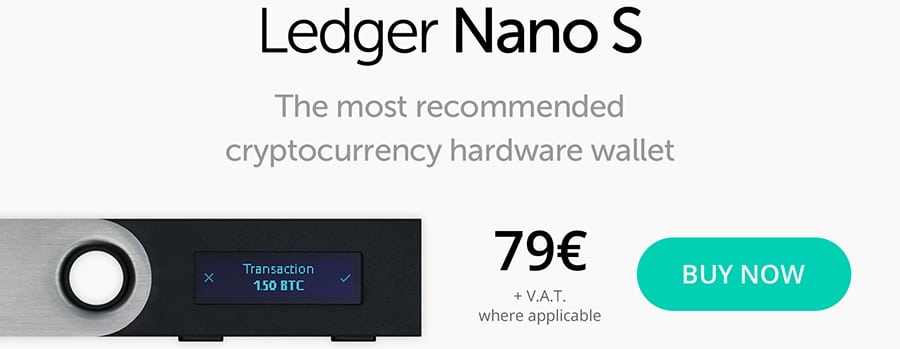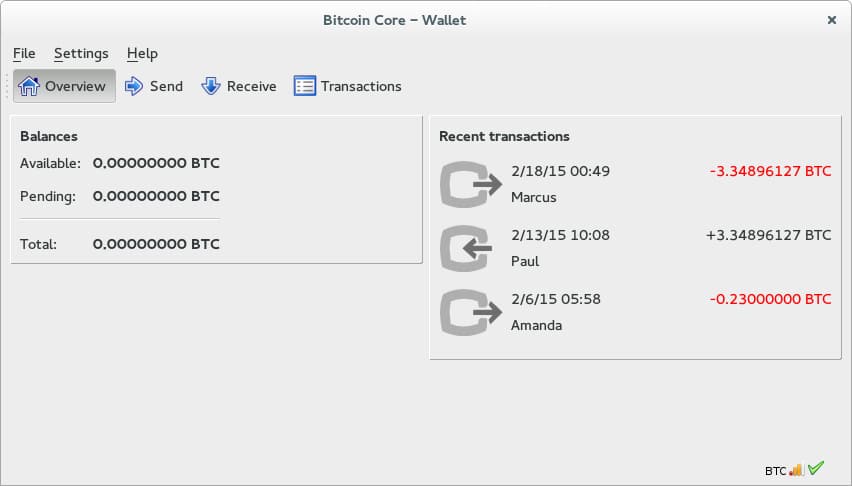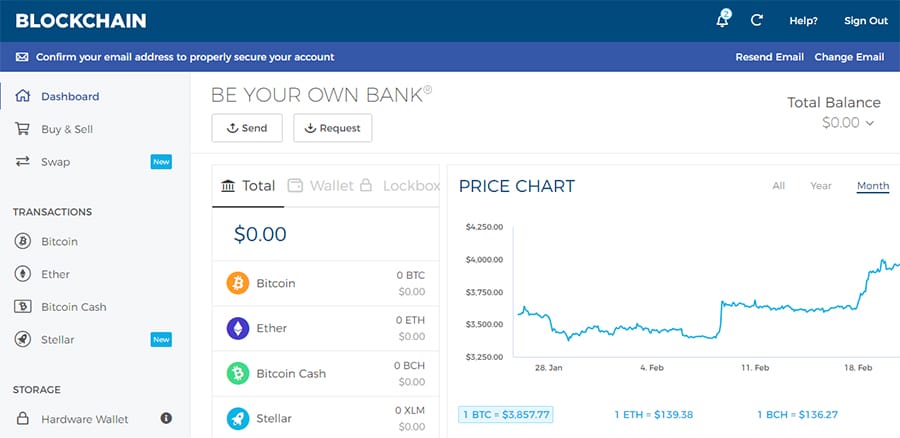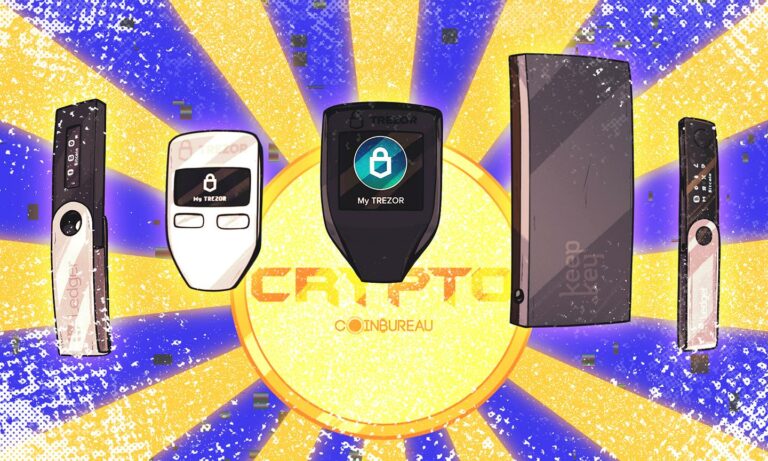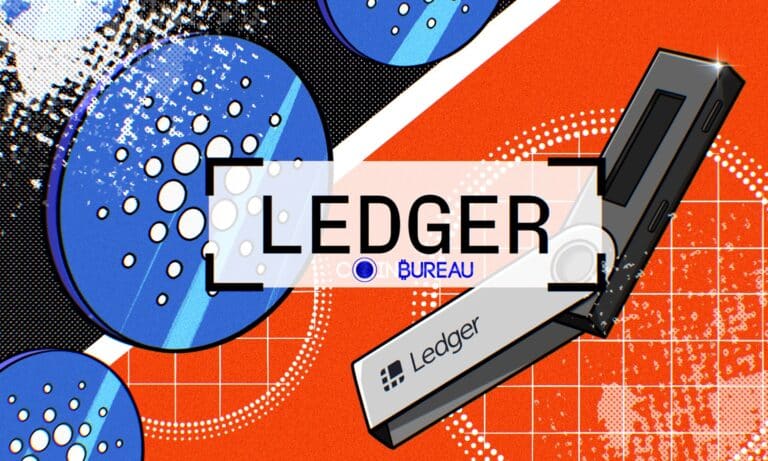When it comes to securing your crypto, they are only as safe as the wallet that you are storing them in.
There are a range of different crypto wallet types that are currently available. These differ according to the intended use, security, mobility and cost. Given this selection, it is essential that you know the exact differences between them and the relative pros and cons of each.
In this post, I will take a look at 5 types of cryptocurrency wallets. I will also look at the benefits and weaknesses of each and present you with the best options for your personal preferences. I will also finish off with some top crypto wallet security tips.
Page Contents 👉
Which Crypto Wallet is the Best?
There are several types of wallets that can be used to store your cryptocurrencies. These are hardware, desktop, mobile, web, and paper. Each has its own strengths and weaknesses, and determining which to use will depend on what use you have in mind for the wallet and the cryptocurrency that will be stored there. Consider the following questions:
- Will the wallet be used for everyday transactions, or simply for long term holding of the cryptocurrency?
- Do you need to store just one cryptocurrency or several cryptocurrencies?
- Will you need to access the crypto wallet only from home, or also while you’re away from home?
The answers to these questions and others will determine which type of crypto wallets will work best for you. Now let’s look more closely at each type of crypto wallet.
Hardware Wallets
A hardware crypto wallet is somewhat unique because it stores the users public and private keys on a physical device that is similar to a USB drive. Hardware wallets are more secure than most other wallet types because the cryptocurrencies are stored offline, keeping them inaccessible to hackers.
Hardware wallets can be used to store many different cryptocurrencies, which makes them very convenient. Using them is also easy. Users plug them into an internet-connected device like their home PC, enter a security PIN and then send the cryptocurrency and confirm. Hardware wallets also include a physical confirmation on the device itself for added security.
Hardware wallet pros:
- One of the safest storage methods for cryptocurrencies.
- Excellent place to store large amounts of cryptocurrencies for investment purposes.
Hardware wallet cons:
- Hardware wallets are not free, and some cost hundreds of dollars.
- While they are simple to use, they may not be the best choice for those new to cryptocurrencies.
Some of the more popular hardware wallets are the Ledger Nano S or Nano X, the Trezor Model T, and the KeepKey.
Desktop Crypto Wallets
Desktop wallets can be a safe choice for storing your cryptocurrencies, especially if it’s run on an offline computer, or one which you know is free of any malware or viruses. Desktop wallets are also usually some of the most prolific wallets and nearly every crypto coin will create their own “core” wallet version for it.
Of course, there is a trade-off and desktop wallets can be susceptible to hackers that target user's private keys.
However, If you install a desktop wallet on a computer that’s never been connected to the internet it essentially becomes a cold wallet and is one of the most secure means for storing your cryptocurrency.
Desktop wallet pros:
- Very convenient if you’re trading cryptocurrencies.
- You maintain control of your private keys.
- Can be very secure if used on a computer not connected to the internet.
Desktop wallet cons:
- It makes it difficult to use your crypto-funds for everyday purchases.
- It becomes much less secure if it’s on a computer connected to the internet.
- You can lose your cryptocurrencies if you don’t have a backup of the wallet and your computer dies.
Some of the more popular desktop crypto wallets include the Exodus wallet, the Jaxx Liberty, and the Electrum wallet. You’ll also find that most cryptocurrencies have their own native desktop wallet, which is often the most secure choice for that coin.
Mobile Crypto Wallets
A mobile crypto wallet is installed on a mobile device just like any other app. They make it convenient for spending crypto-funds on the go, just like ApplePay. You’ll find that some desktop and online wallets also have mobile versions, but other mobile wallets are only for mobile use.
Of course, this added convenience means that you lose some functionality that core desktop wallets usually come with.
For example, you cannot use your phone to earn staking rewards on Proof-of-Stake coins. You also cannot really use your mobile phone resources to mine coins which is something that can be done in the core wallets of numerous mineable cryptocurrencies.
Mobile wallet pros:
- Generally safer than online wallets.
- Very convenient for those who regularly use crypto as payment.
- Most mobile wallets also have a QR scanning feature.
Mobile wallet cons:
- If you lose your phone you could easily lose your crypto-assets as well.
- Mobile viruses and malware are easily picked up.
Some popular mobile crypto wallets include Coinomi, Jaxx Liberty, Mycelium and the Coinbase mobile app.
Web Crypto Wallets
Many people will tell you that these are the least secure type of crypto wallets, and they wouldn’t be completely wrong. And yet there are still good reasons for using a web wallet for small amounts of crypto-funds. One of these is that you can access your funds to send, receive and make payments from any device that has a browser and is connected to the internet.
The downside to that is you have to store your private keys on the servers of the web wallet provider. All of the popular web wallets provide encryption for your private keys, but the fact that they are still storing them on their servers makes the web wallet the least secure crypto wallet type.
Web wallet pros:
- Super fast transactions.
- May support a wide variety of cryptocurrencies.
- Convenient for those always on the go.
Web wallet cons:
- Security risks from scams and hackers.
- Risk of computer viruses.
- Third party access to your private keys.
There are a number of web wallets you can use, with some of the most popular including Green Address, MyEtherWallet, and blockchain.info. Note that the wallets provided by cryptocurrency exchanges are basically web wallets.
Paper Wallets
Paper wallets aren’t talked about that often, but they are very easy to use and give an excellent level of security. At its most basic a paper wallet is nothing more than a physical copy of your public and private keys. You can create one by writing them down yourself on a piece of paper.
There are also paper wallet generators that can create a pair of keys and print them, along with a QR code. Using a paper wallet is straightforward. To add funds to the wallet a transfer is made to the public address of the paper wallet. The wallet can then be kept in a cold storage environment which keeps it out of the hands of hackers.
And to spend the funds in the paper wallet you simply make a transfer from the paper wallet to another wallet using the private keys or by scanning the QR code.
Paper wallet pros:
- You control the private keys.
- Nothing stored on an online device.
- Basically hacker proof.
Paper wallet cons:
- Hard to use for day-to-day transactions.
- Not user-friendly for those new to cryptocurrency.
- They can be destroyed (fire, water, etc) and cause you to lose the crypto-assets stored on them.
One of the most popular paper wallet generators is WalletGenerator.net. It supports the creation of paper wallets for 197 different cryptocurrencies. If it doesn’t support a coin you can either create the paper wallet manually or Google for a wallet generator for that particular cryptocurrency.
Crypto Wallet Security 101
Finding the best cryptocurrency wallet is actually only the first step when it comes to securing your coins. How you deal with your crypto and how you use your wallet is just as important. There are a number of things that you need to take into account for wallet security:
- Make Backups: When you are creating a crypto wallet, you will usually be given a collection of seed words that can be used to recover it. Be sure to make a backup of them as they are sometimes the only thing separating a lost password from lost crypto. There have been countless stories of people who failed to make backups of their seeds.
- Keep Your PC / Mobile Clean: If you store your crypto on a PC or mobile wallet then you need to make sure that you are not downloading any suspicious files or installing malicious apps. There are some really smart hackers out there who have even developed malware that can operate undetected by anti-virus software. They are also able to upload mobile apps in the official app stores that garner thousands of downloads and which look 100% legitimate. Always be suspicious!
- Silence is Golden: One of the main driving forces around the creation of Bitcoin was the privacy of user funds. Hence, going around telling people how much crypto you hold in your wallets is not really the best idea. This opens you up to a number of threats including those of the physical form. There have numerous cases that have been reported of crypto investors facing the threat of violence if they did not hand over the keys to their crypto wallets. No one needs to know what you are Hodling!
Conclusion
Cryptocurrency wallets are a big deal since they are so important when it comes to keeping your funds secure. They are also the only way most people will be able to send, receive and store cryptocurrencies. The type of wallet you use will depend on how you use cryptocurrencies.
Many people will find that they need several types of wallets. Maybe they have a hardware wallet for storing large amounts of cryptocurrencies, a desktop wallet for a smaller amount that they use for trading purposes, a mobile wallet for everyday use, and a web wallet at an exchange for ease of trading.
Each type of crypto wallet comes with its own pros and cons, and choosing the right one for you will depend on what use you have planned for it. Irrespective of which wallet you do decide to go for, make sure that you follow crypto wallet security 101.
Featured Image via Fotolia

